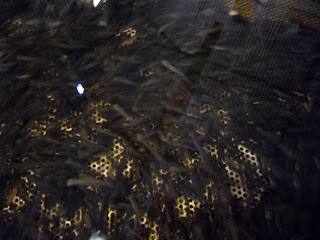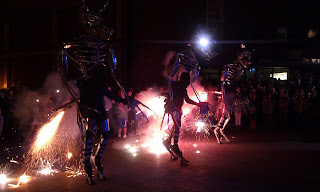Hello,
it has been a while. Currently I have been working hard on my thesis and I am hoping to finish soon ( a few months that is). Unfortunately scientific writing doesn't come naturally for me and it takes me triple the amount of time, when compared to others, to produce something decent. I have been working on a few chapters but none of them is really in state fit to be presented.
I always though that research was what I wanted to do but in recent months I think I started to change my mind. I am nor particularly enjoying this part of my PhD and really...writing is what science is all about! Communicating your research in a well constructed and understandable format is essential.
So I am at the turning point of my career, which path to take? the choices are:
1- years of struggles going between 2-3 years post-doc contracts (if you can find one...) with no job security but only stress
2- try and find a mindless job somewhere involving getting up every day at the same time, doing exactly the same things every day till your spirit dries up and the only thing to do is to count the days to retirement
Cynical view isn't it? Of course a third option would be find a great job where your brain is stimulated and you get paid loads but really...how many of those are out there? I feel like I have to choose from being a overworked donkey or battery chicken.
I think it may be the stress talking o be fair. In the end if you have an interesting and stimulating private life should help making sense of things, maybe i'll get one of those when I finish and all will be well.
raffles79
it has been a while. Currently I have been working hard on my thesis and I am hoping to finish soon ( a few months that is). Unfortunately scientific writing doesn't come naturally for me and it takes me triple the amount of time, when compared to others, to produce something decent. I have been working on a few chapters but none of them is really in state fit to be presented.
I always though that research was what I wanted to do but in recent months I think I started to change my mind. I am nor particularly enjoying this part of my PhD and really...writing is what science is all about! Communicating your research in a well constructed and understandable format is essential.
So I am at the turning point of my career, which path to take? the choices are:
1- years of struggles going between 2-3 years post-doc contracts (if you can find one...) with no job security but only stress
2- try and find a mindless job somewhere involving getting up every day at the same time, doing exactly the same things every day till your spirit dries up and the only thing to do is to count the days to retirement
Cynical view isn't it? Of course a third option would be find a great job where your brain is stimulated and you get paid loads but really...how many of those are out there? I feel like I have to choose from being a overworked donkey or battery chicken.
I think it may be the stress talking o be fair. In the end if you have an interesting and stimulating private life should help making sense of things, maybe i'll get one of those when I finish and all will be well.
 |
| http://www.adelaidenow.com.au/news/opinion/cooked-chicken-can-be-toxic/story-e6freagu-1225997064989 |
raffles79























